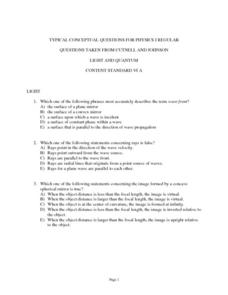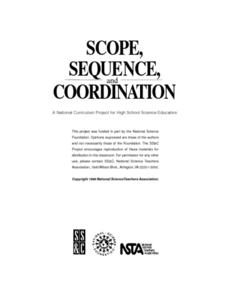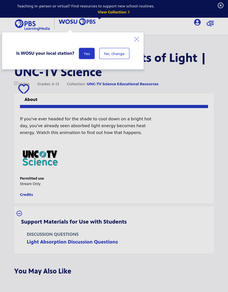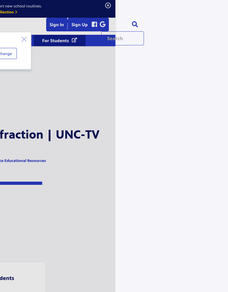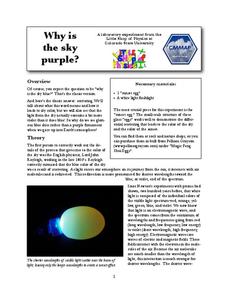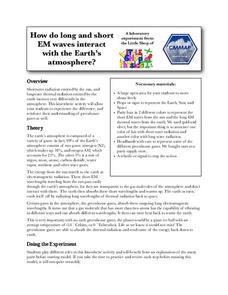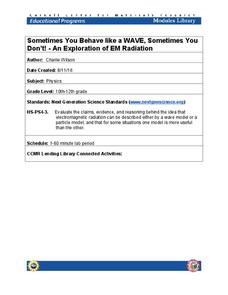Rice University
College Physics for AP® Courses
Take a look at an organized physics course. The 34-section electronic textbook covers material in AP® Physics 1 and 2. Teachers use the text to supplement lectures and have the class work through the labs. Each section contains multiple...
Oceanic Research Group
Heat Transfer and Cooling
Astronauts train underwater to simulate the change in gravity. An out-of-this-world unit includes three hands-on activities, one teacher demonstration, and a discussion related to some of the challenges astronauts face. Scholars apply...
Scholastic
Study Jams! Light
Let there be light in your classroom with a video that explains that light travels in waves, the electromagnetic spectrum contains seven colors, and the color of an object depends on which light waves it reflects and absorbs. With...
Curated OER
Typical Conceptual Questions for Physics I - Light and Quantum
This is a stellar overview of everything light and quantum! There are 30 multiple choice questions, none of them requiring any mathematical computation. There are a few diagrams to analyze: light rays striking reflective and refractive...
Curated OER
Wave Phenomena and the Electromagnetic Spectrum
Science learners scrutinize shadow size and quality, and experiment with diffraction. They model superposition of electromagnetic waves, and experiment with interference. These activities are action-packed and challenging for your...
Curated OER
Regents High School Examination - Physics 2010
Give every type of learner in your physics class an opportunity to demonstrate what they have learned throughout the year. From analyzing tables and graphs, to evaluating diagrams and solving problems, there is an outstanding variety of...
Curated OER
Take-Home Midterm Exam #3
The University of Hawaii has published a vast collection of midterm and final exams for their Physics 152 course. This particular exam offers a variety of assessment methods, and covers the topic of electromagnetic radiation....
California Department of Education
What Is a "Wave"?
Take a stretch, but don't wave goodbye. An interesting resource provides everything needed to present an introductory lesson plan on waves. Teachers present a PowerPoint defining the types of waves and their characteristics. Pupils use a...
PBS
Thermal Radiation: Heat Transfer | UNC-TV Science
What do people, campfires, and microwaves have in common? Investigators explore heat transfer by thermal radiation, discover the role of electromagnetic waves, and see examples of radiation while viewing a video. Scholars challenge their...
PBS
Light Absorption: Effects of Light | UNC-TV Science
Beat the summer heat by exploring the properties of color. Scientists view a video explaining the relationship between light absorption and energy transfer using variables including intensity, time, and wavelength. A multiple-choice...
PBS
Reflection and Refraction | UNC-TV Science
Uncover the exciting interactions of light energy and matter ranging from color to optical illusions. Participants explore color using red and green apples, differences between reflection and refraction, and descriptions of related...
NASA
Taking a Cold, Clear Look at the Universe
Take a look with another perspective. Pupils read to find out what portion of the electromagnetic spectrum a space telescope sees and the difficulties of viewing infrared radiation from other objects in space. Individuals discover how...
National Woman's History Museum
Hedy Lamarr, An Inventive Mind
Hedy Lamarr led a double life. Best known as an actress, Lamarr was also a brilliant inventor, responsible for the technology found in Wi-Fi, GPS, and Bluetooth. After studying primary and secondary source materials, groups conduct an...
Utah Education Network (UEN)
Utah Open Textbook: Physics
Textbooks come in all shapes, sizes, and media these days. An electronic textbook resource offers Physics materials for an entire course. The text offers an explanation of physics topics as well as examples of calculations and reading...
National Nanotechnology Infrastructure Network
Jell-O® Waveguide and Power Loss
Jell-O® can help model the transmission of light through fiber optic cables. Young scientists use the jiggly dessert to make a waveguide to transmit a laser beam from one point to another. Their models help them learn the function of...
National Nanotechnology Infrastructure Network
Small Scale Sculpting: Etch Lab
Make works of art using a vintage yet effective etching strategy. The surface of a semiconductor chip has specific patterns formed through a process called etching. Through a lab investigation, young scholars recreate that process on a...
Colorado State University
Why Does it Get Colder on a Clear Night than a Cloudy Night?
Clouds are nature's insulator! A lab investigation asks learners to use an infrared thermometer to measure differences in infrared temperatures. They find that pointing the thermometer at a cloud has a much different result than pointing...
Colorado State University
Why Is the Sky Purple?
The color of the sky depends on the time of day. Young scholars experiment with scattering different wavelengths of light to recreate the color of the sky. They observe both the longer blue wavelengths and the shorter red and orange...
Colorado State University
How Do Long and Short EM Waves Interact with the Earth's Atmosphere?
Things are about to heat up in your classroom! A kinesthetic lesson asks learners to play the part of the gases in the earth's atmosphere and interact with the sun's radiation. The focus is to learn the impact of the increasing...
University of Texas
Multi-wavelength Astronomy
Explore a land far, far away with a well-designed lesson that examines electromagnetic imaging as a way to obtain information about galactic structures. Learners begin to see the importance of looking beyond the visual spectrum to reveal...
Columbus City Schools
Making Waves
Learning about waves can have its ups and downs, but a demo-packed tool kit has the class "standing" for more! Learners gain experience with several different wave types, organizing observations and data, and wave terminology. The...
CK-12 Foundation
Least Time
What is the fastest way to get from point A to point B if you are going through two different mediums, such as air then water? Scholars explore the way light travels through air, water, acrylic, glass, and diamond as they answer this...
CK-12 Foundation
Light Wave
Do radio waves create light? It's more difficult to understand the things we can't see than those that we can. The simulation compares the relatively small range of visible light to the entire electromagnetic spectrum. It graphs the size...
Cornell University
Sometimes You Behave Like a WAVE, Sometimes You Don't!
Electromagnetic radiation behaves like both a wave and a particle. Help classes explore this concept through a lab investigation. Young scientists create optical interference patterns on a glass slide using a carbon layer. They analyze...





